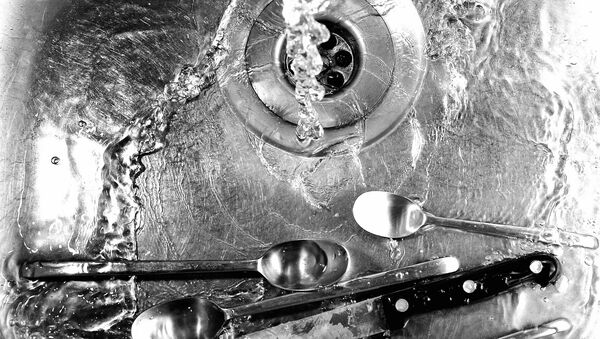The 'Public Services Under Attack' report, released by a group of international NGOs and trade unions, claims that the CETA and TTIP trade deals, being negotiated between the EU, and Canada and the US respectively, would expose public services to highly damaging "commercialization" from multinational corporations.
Citizens' rights to water, health, & energy services threatened by #TTIP & #CETA http://t.co/kGmlFlssw5 pic.twitter.com/atR9IUvsHA
— CEO (@corporateeurope) October 12, 2015
"In a worst case scenario, they could lock in public services into a commercialization from which they will not recover — no matter how damaging to welfare the results may be," the report states.
While the UK government has previously stated that "TTIP will not change the way that the NHS, or other public services, is run," the report has raised questions over the legitimacy of such claims, pointing out the 'negative list' approach to public services in the CETA deal.
"This means that all services are subject to liberalization unless an explicit exception is made."
"It marks a radical departure from the positive lists used so far in EU trade deals which contain only those services which governments have agreed to liberalize, leaving other sectors unaffected.
Public services under attack through #TTIP and #CETA New report out today from @corporateeurope http://t.co/Z1n35S61aA #NoTTIP
— Global Justice Now (@GlobalJusticeUK) October 12, 2015
"The negative list approach dramatically expands the scope of a trade agreement as governments make commitments in areas they might not even be aware of, such as new services emerging in the future. The same could happen in TTIP where the Commission is pressuring EU member states to accept the same, risky approach, meeting the demands of the business lobby."
Concerns Multinationals Could Cut Off Water Supply
While details of the proposed trade deals are currently being negotiated in secret, there are fears that any potential 'negative list' on public services could include basic human needs, such as the provision of water.
"It shows the aggressive agenda of services corporations with regards to TTIP and CETA, pushing for far-reaching market opening in areas such as health, cultural and postal services, and water, which would allow them to enter and dominate the markets."
Among the gravest concerns is that if privatization of water services is included in the TTIP, multinationals could potentially turn off someone's water supply over a pay dispute, raising human rights concerns.
Secret meetings in the USA, secret trade deals TTIP — co author of privatisation books! #NHS not safe in their hands pic.twitter.com/UlXqcwTXSz
— #peoplesNHS NE (@NHS_July51948) October 12, 2015
The report states that while there is the possibility for public services to be excluded from the trade deals, the various loopholes in negotiations makes it almost impossible for this to work in reality.
The 'Public Services Under Attack' report also echoed the concerns of anti-TTIP and CETA activists over the investor-state dispute settlement (ISDS) mechanism, labeling it as "probably the biggest threat to public services.
The ISDS provision would allow multinationals to sue governments for implementing changes or legislation that may be seen to be inhibiting profits, regardless of the benefit they may bring to the public.
Both trade deals have experienced a significant public backlash in recent years, with activists highly critical of the secret negotiations, which have ultimately meant that the public is unaware of what is exactly being negotiated.
More than 250,000 people protested against TTIP and CETA during a demonstration in Berlin over the weekend, while more than 3 million people have so far signed a petition calling for a boycott of the deals.





